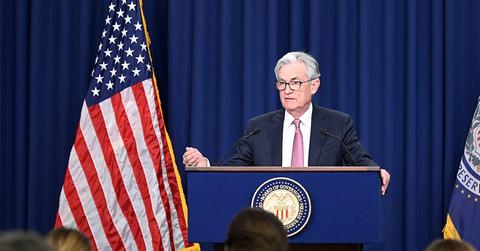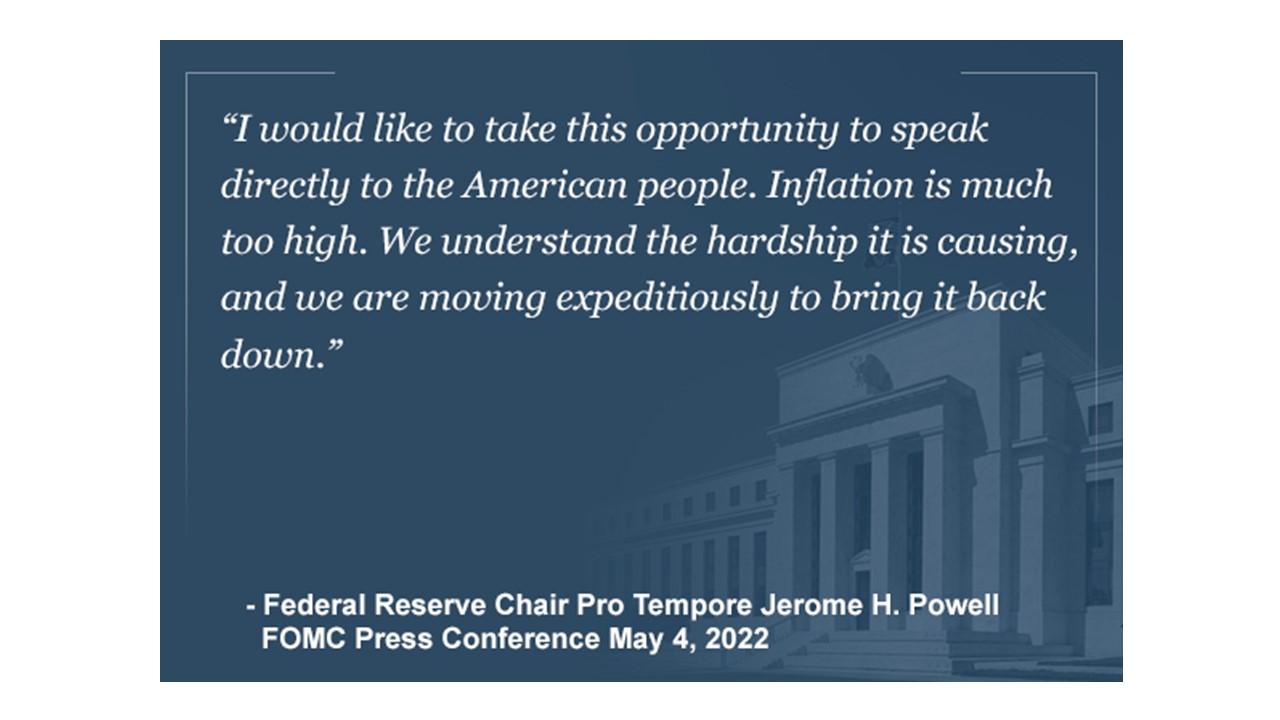Mortgage Rates Are the Highest Since 2009 Amid Fed Rate Hikes
The Fed is expected to raise rates at a fast pace in 2022 to tame high inflation, which is impacting mortgages. How will a Fed rate hike affect mortgages?
May 5 2022, Updated 1:18 p.m. ET

According to Mortgage News Daily, the average rate on a 30-year mortgage hit 5.5 percent on May 5. It was 3.29 percent at the beginning of the year. The rise was expected but the market underestimated the extent. The Fed is on a rate hike spree to tame multi-decade high inflation. The Fed hiked the rates by 50 basis points on May 4, which was the highest increase since 2000. Also, the Fed would offload mortgage-backed bonds from its balance sheet. These rates are impacting potential homebuyers. How does the Fed impact these rates and will a Fed rate hike affect mortgages?
Mortgage rates haven't been this high since 2009. What's even worse news for potential homebuyers is that they're expected to keep trending higher. The Fed will likely raise rates again by 50 basis points at its June meeting and by 25 basis points at each of the other meetings in 2022. The basic rule for mortgage rates also remains the same — supply and demand. Inflation, the economic growth rate, the federal reserve monetary policy, and the bond market operations all impact rates.
When is the next Fed meeting on interest rates in 2022?
The Fed will hold eight meetings in 2022. The first meeting was held on January 25–26, and the second and third meetings were held in March and May where it raised the rates by 25 basis points and 50 basis points, respectively. The rest of the meetings are in June, July, September, November, and December.

The Fed is trying to catch up and tame inflation.
The consensus seems to be that the Fed will be front-loading the rate hikes. After two 50 basis point rate hikes in May and June, the Fed is expected to revert to the usual 25 basis points rate hikes. It's widely believed that the Fed is running behind the curve and front-loading rate hikes might be its effort to catch up with soaring inflation.
How does the Fed impact mortgage rates?
The Fed doesn’t impact the mortgage rates directly but it has a lot of tools that influence mortgage rates in a number of ways. The Fed’s tools include QE (quantitative easing) or tightening, the federal fund rate, and open market operations among others. Therefore, mortgage rates are intrinsically tied to Fed actions and ultimately keep trending in the direction Fed indicates through its federal fund rate changes. The Fed sets a target for this rate and in the process, it impacts all the other rates, including short and long-term interest rates.
As the credit becomes dearer for the banks with a hike in FFR, they tend to pass it on to their customers. This causes the interest rate on bank borrowings, including consumer and mortgage rates, to go up. A Fed rate hike creates a ripple effect that ultimately impacts mortgage rates.
The Fed can increase or decrease the money supply in the system through its policies. For example, through QE between 2008 and 2014, the Fed resorted to QE. This encouraged banks to lend money easier, which kept mortgage rates low. Through open market operations, the Fed buys and sells government bonds in the open market, which creates or absorbs the money supply in the system.
Higher Fed rates have already made house affordability near the record worst for homebuyers and it might get worse before it gets any better. Mortgage refinancing demand has also declined significantly. Understandably, this isn't the best time to enter the home buying market. Brace for much higher rates and pray that they don't slow down the growth drastically.
